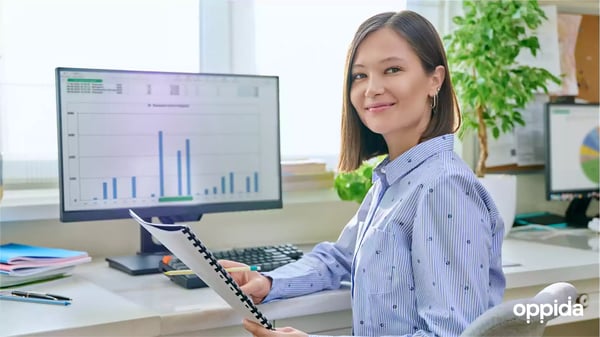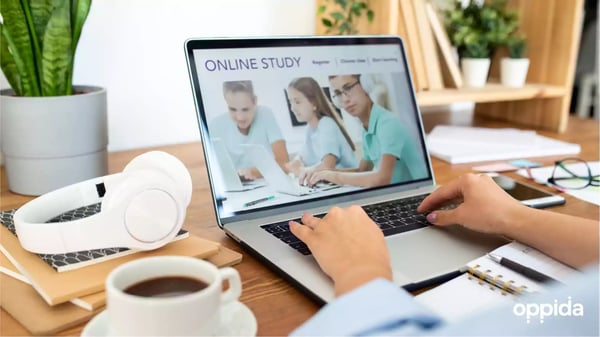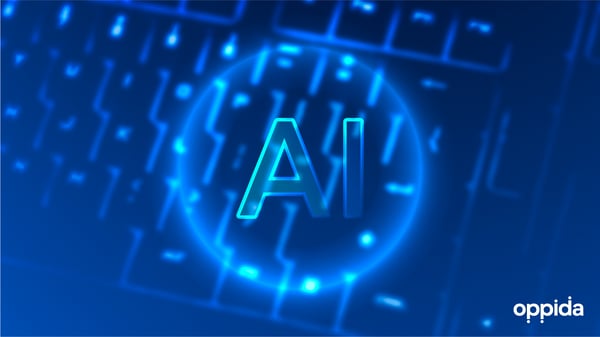Building quality online educational offerings
5 more shifts that will unlock digital education’s true potential (and how to make them work for you)
As promised, here is part 2 of the findings from Oppida’s brand strategy work on the potential of digital education. I was very encouraged by the engagement in the last blog and hope this one also provides some food for thought and discussion.
-
Within the corporate world there is a lack of knowledge around the potential of online education. Cost is therefore the deciding factor.
I believe this is closely linked to how many organisations don’t really understand how to design online programs for scale and agility. Also, there is a lack of understanding in how to deliver an engaging, blended program that has the flexibility needed for busy workers. It has taken quite a while for many corporates to transition their travel budgets to the L&D team as the decision makers are often the ones doing the travelling roadshow (and probably enjoying it)! What we need to see is corporates exploring more scalable, efficient ways to train/onboard/upskill that have a long term ROI.

-
Incentives for good online learning design don’t exist as learners are inexperienced too.
I feel this is true to some extent, but it’s changing. As the next generation of learners hits the higher education system they are questioning many things. Will this degree allow me to cultivate the skills needed for the career I want? Is this institution demonstrating they are across the digital literacies needed to engage in the world today? In line with this level of questioning, they are also increasingly impatient with badly designed course software and systems. A 20-year old today has barely known life without the internet and has had a computer in their pocket since middle school.
It is my hope that as learners become more sophisticated in their understanding of what education they need to lead a successful and fulfilled life, this will incentivise institutions to raise the bar in the online programs they are selling. If all you are doing now is pasting a bunch of YouTube clips into an LMS and attaching some PDF’s, these young people will find you out and not cough up the cash!

-
Technical threshold! Even the best Learning Management Systems (LMSs) need some technical programming skills to make quality digital education.
Most LMSs that come ‘out of the box’ are pretty bland and basic. This is for a reason, as each user has different needs and student usage cases. However, if an institution doesn’t budget or invest in the technical know-how to support the implementation and design of the system we run into huge quality control issues. When teachers, facilitators, academics or learning designers are given licence to ‘go rogue’ in the system, courses can become a dog’s breakfast!
Consideration, time and budget must be given to setting up the system (or establishing design rules) in order to ensure a seamless student experience. If done early, this can save so much money in the long run!

-
Learning experiences need to be easier to engage with, too little emphasis is put on user experience.
Broadly speaking this is true. However, we are seeing more and more examples of beautiful platforms and LMS customisations! Oppida advocates at all times that, at a minimum, all learning needs to be accessible (for all) and responsive on all devices. After that, the focus should be on clear navigation, modern designs and consistency. It is true to say that people love (and respond positively to) beautiful things! So why should we accept 1990’s style pixelated clipart and tacky fonts in 2020?

-
Digital education has not embraced the potential for customisation and individualisation offered by Artificial Intelligence (AI).
Again, as Learning Designers are often still fighting against PDF’s and annotated Powerpoints there is often no time to talk AI! To embrace AI in an online experience means truly understanding how to design for digital. It requires the Learning Designer, Subject Matter Expert and the Educational Technologist to work very closely together in the design process so they fully understand the learning outcomes, functionality of the system and overall student experience that needs to be created.

So, in saying all this, we at Oppida are very optimistic about the progress the sector is making in the digital realm. Every day we see our clients move further up the continuum of understanding about designing for digital. They are usually excited to hear our team’s suggestions and try new things to enhance their delivery. The key is to be open minded and look more holistically at education design in the long run.


